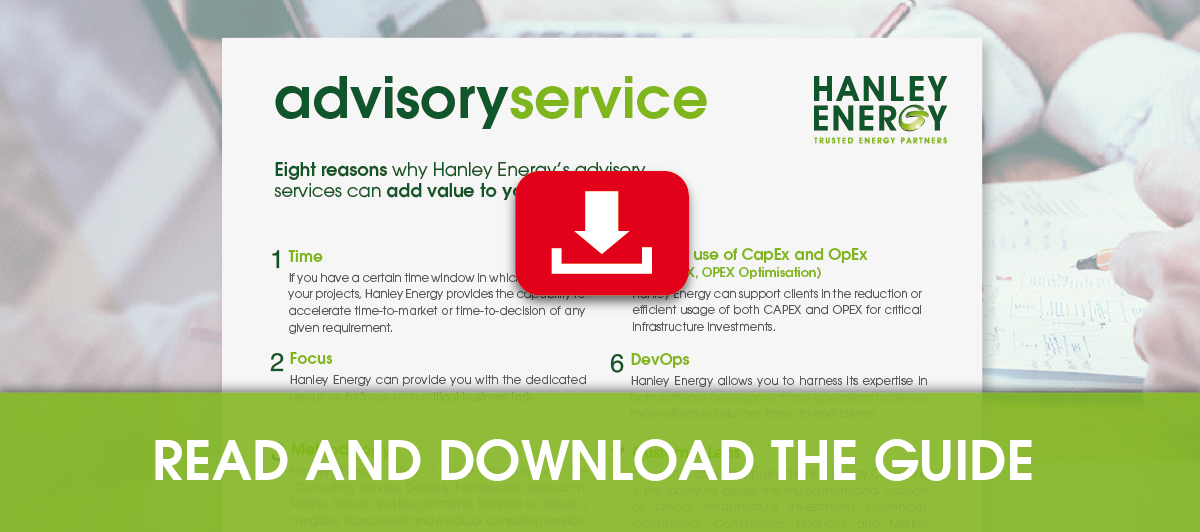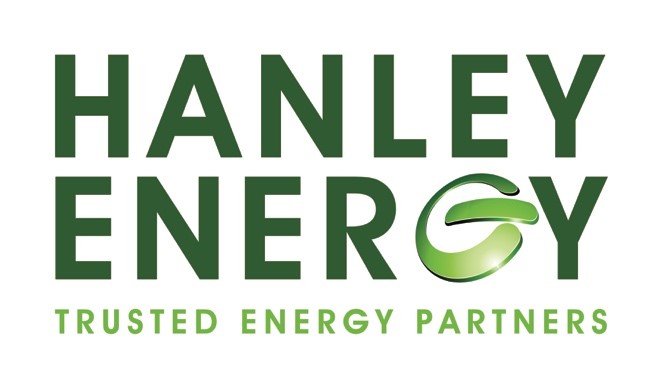‘We Needed To Tease Out The Secret Sauce – That Key Insight That Already Existed In The Organisation’
Hanley Energy has long recognised that knowledge is power. Now, the company is sharing that expertise with clients to facilitate better decisions – and better outcomes.
“Hanley Energy has the Engineering systems, we have the ability to design, we have the ability to install and we have the logistics to deliver to site globally,” explains Andrew Dobson, Head of Global Sales.
“By taking those key capabilities, harnessing the great value that exists in them and offering it as an advisory service, we elevate our value proposition to clients within the critical energy sector.”
As a specialist in energy management, critical power supply and IT infrastructure, and with a stable of world-class engineers at its Irish based Global Competence Centre, Hanley Energy has deep expertise in the rapidly evolving critical power sector.
Recognising the advantage this expertise could offer to clients in strategic decision-making processes, Hanley Energy made a conscious move to bring this value add-on front and centre.
An MBS graduate with over 18 years experience in client management and engagement, Andrew’s tasked with leading a consultancy and sales division which unlock value for clients by combining Hanley Energy’s expert ability with its innovative portfolio of products and services.
Deep industry knowledge
“What we have is people with deep expertise in engineering, from design through to installation of software and hardware,” says Andrew. “What differentiates us is that we work alongside major original equipment manufacturers and that not only gives us deep industry knowledge, but also agnostic capability – we’re not trying to sell clients any particular portfolio.
“There’s a lot of engineering consultancies who do a great job and advise clients and will receive data from the architect and come up with proposals, etc. But what we recognised was that we had the ability to advise on design and delivery – and also the ability to execute those projects.
“That’s what sets us apart.”
Hanley Energy have transformed that difference into a tangible consultancy offering – and Andrew’s whose arrival at the company last year was, in itself, a statement about Hanley Enegry’s desire to offer something beyond nuts-and-bolts solutions.
“We needed to tease out the secret sauce, or the key insight that already existed in the organisation,” he explains. “A lot of things were sitting inside people’s heads, and a lot of things were done day-to-day in their work – they had to be translated over into something tangible that we could offer to clients. We focused on ‘what is it we do’ and identified those elements of the value proposition.”
What Hanley Energy offers to clients is its time, focus, methodology and skills.
“What we’re doing is augmenting clients’ teams so whenever they need to deliver something, rather than them dedicating five or 10 people to it, we can do that on their behalf, while having them fully engaged in the delivery process,” says Andrew.
Efficiencies and opportunities
“If they’ve got five or 10 projects to do in a year, they have to make priority choices. What we can enable them to do is make sure they can increase the capacity of this project, we take on board that work for them, do it on their behalf and take it all the way through to realisation.”
A key aspect of the consultancy platform is that it places this expertise earlier in the change process, meaning it can strategically influence decisions being taken – and thereby create efficiencies or opportunities for the client.
“If there’s a change in a building, it’s generally architect-led and then it goes out to the major contractors and that pyramid forms and it cascades all the way down to sub-contractors,” says Andrew. “What we found was that, while we’ve got specialist skills and we’re able to answer and address particular problems, we were quite far down the value chain.”
The customer lens
“We were being asked things right at the end when budgets had been defined, solutions had been part-created. We realised that some of the value and benefit that we could’ve given to our clients should have been given earlier in the process, because we’re the specialists in those areas.
This is where the ‘customer lens’ comes into play – they have the ability to look beyond the narrow operational perspective to take on the broader view of the financial and market implications for the client.
“What we are able to recognise is that change would have financial impacts for a client,” says Andrew. “So, we’re able to look at the commercial elements, the money you potentially could make or the money you could save from that change, and that could be both internal or external.
“We are an engineering company and engineers are very good at communicating with other engineers and operations people. But what we saw was that the decision-making cycle is longer and there’s a lot more stakeholders involved.
“That’s why we use this customer lens – we look at the operational and technical side but we also address the commercial and financial side, as well as the market side.
Specialist integrator
“We’re able to look at all those three points which drive strategic decision-making and we are able to help our stakeholders accelerate those decisions.”
Hanley Energy’s successful track record means its clients now view it as a “specialist integrator” who they know and trust.
“It’s ideal that clients will see you that way,” says Andrew. “That means you are the organisation who’s going to be called upon always to deliver those elements that are within your portfolio – they know who you are and the skills you offer, so therefore they trust you and always go to you.”
And that trust is important when there is so much at stake for clients – Andrew points to the example of two airlines as how critical infrastructure failure can be catastrophically expensive.
“A clear example of a failure to see both the operational-technical element and indeed the cross-function support was with BA and Delta airlines. Within the past two years, both of them had catastrophic power failures around their data centres. The cost to BA was estimated at £80m and the cost to Delta at up to $100m. So that is the cost of failure.”
Andrew sums up what separates successful consultancy from knowledge alone. “There’s a perception that consultancy is like someone taking your watch off you and telling you the time,” he says with a laugh. “And there’s a slight bit of truth in that – but the important question there is ‘why does somebody need to tell you the time?’
“Why do you bring consultants in? Because you’ve got a shortage of capability, skills, or time in a certain window. That’s what we come in and do. We can advise in an agnostic way because of our deep knowledge around everything from stepping into the power grid to utilisation onsite.
“At Hanley, we fulfill that requirement.”
Get in touch with our Consultancy team on energy@hanleyenergy.com if you would like to learn more about our services.



Leave a Reply